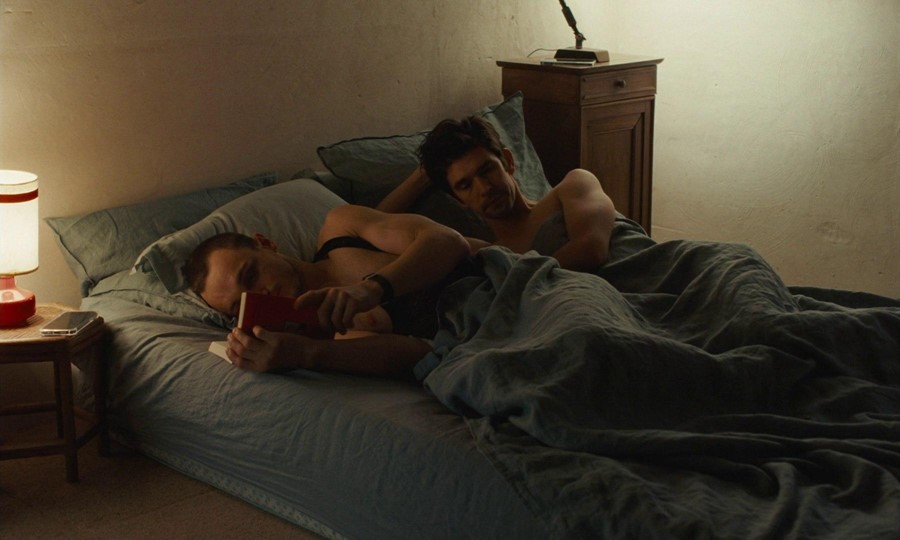From Rachel Cusk’s new novel about womanhood, art, and misogyny to Sheila Heti’s radical Alphabetical Diaries, here are some of the most exciting books to look forward to in 2024
Come and Get It by Kiley Reid (January)
Kiley Reid’s debut, Such A Fun Age, enjoyed the sort of success most authors can only dream of (it was longlisted for The Booker Prize) but any suggestion that she may struggle with what publishing likes to call the ‘difficult second novel’ is thwarted from the very first page of Come and Get It. It’s a campus novel that explores the dynamics of women in and around a dormitory in a US university. Themes of race, class and privilege and where they intersect underpin the plot. But it is money specifically – who has it and how – that takes centre stage. Each character’s attitude to spending and earning, not to mention their commitment or aversion to consumerism is writ large.
Come and Get It a festival of microaggressions; it’s uneasy, and Reid doesn’t give any character a free ride. She skewers mean girls, mummy’s girls and freeloaders with both clarity and subtlety. She trusts readers to get it and why wouldn’t they, when the dialogue and little details about bedroom décor is so excruciatingly accurate? A lot of the plot points are anchored to seemingly low-stakes stuff – stolen ideas for sorority party themes, dirty dishes in the shared kitchen sink. Until it’s clear that even the littlest thing can have course-altering consequences.
![ALPHABETICAL DIARIES [Sheila Heti]](https://images-prod.anothermag.com/480/azure/another-prod/440/1/441469.jpg)
Alphabetical Diaries by Sheila Heti (February)
In Sheila Heti’s Alphabetical Diaries, thoughts and observations from a ten-year period are arranged into alphabetised autofiction – so every chapter is a letter from A to Z, and every single sentence in each chapter begins with the corresponding chapter ‘title’. Needless to say, this is about as far from conventional narrative as can be imagined: in fact, it breaks new ground. It might feel gimmicky, but with Heti at the helm, this book is exciting, radical and clever. Patterns emerge but never at the cost of plot and meaning. Just brilliant.
Greta and Valdin by Rebecca K Reilly (February)
A bestseller in the author’s native New Zealand, Greta and Valdin is set to delight UK audiences thanks to Reilly’s consistently droll prose which tells the story of two siblings who are navigating queer love, generational trauma and an eccentric extended family.
The novel is split between the voices of the two eponymous protagonists, each narrating alternate chapters. Reilly’s rendering of each sibling is richly detailed, intimate, and impertinent in places and you cannot get through a single page without finding a phrase or articulation that is funny enough to reread multiple times and underline. Anyone comforted by the chaotic emotional lives of the neurotic, lovestruck or heartbroken – this is absolutely for you.
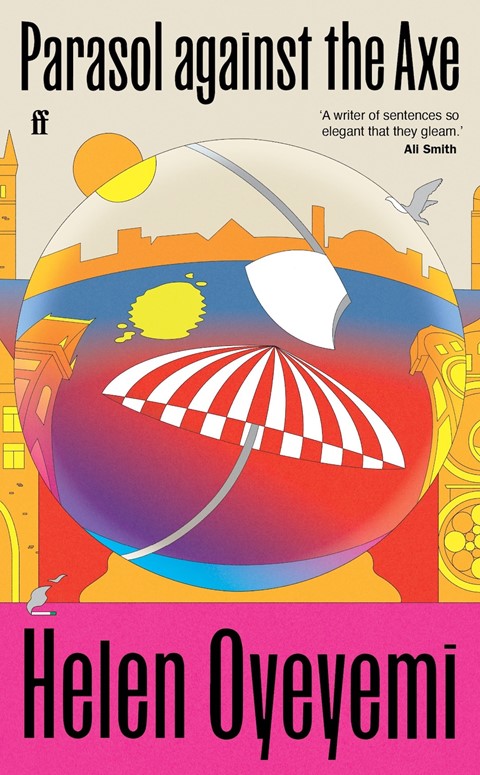
Parasol Against The Axe by Helen Oyeyemi (February)
‘Original’ is a word thrown around too much when talking about fiction, but in the case of Parasol Against The Axe, it’s an entirely appropriate description. Oyayemi’s vision is vast and enigmatic, carried by sentences so crisp and lithe, this is like nothing you’ve ever read before.
You do need all your wits about you for this ‘weird in a good way’ tale that centres on a hen party in Prague, where the city is a living thing and not merely a location; a living thing prone to trickery, a thing that delights in getting people lost and helping them find their way again. As the women at the heart of the tale gather to celebrate, their individual versions of the past converge too and readers are reminded that stories can have many meanings and of the power of interpretation.
Fourteen Days edited Margaret Atwood and Douglas Preston (February)
A collaborative novel might feel like red flag central until you consider that it is co-edited by Margaret Atwood and that most of the 36 writers involved are literary big cheeses, including Emma Donoghue and Meg Wolitzer. It’s true that revisiting the pandemic is unlikely to be part of anyone’s 2024 bucket list but with Fourteen Days, where the residents of a Manhattan apartment block begin a custom of gathering on the roof to tell stories during lockdown, will be an exception. Each character is written by a different author and – plot twist – you won’t find out who wrote what until the end of the book.
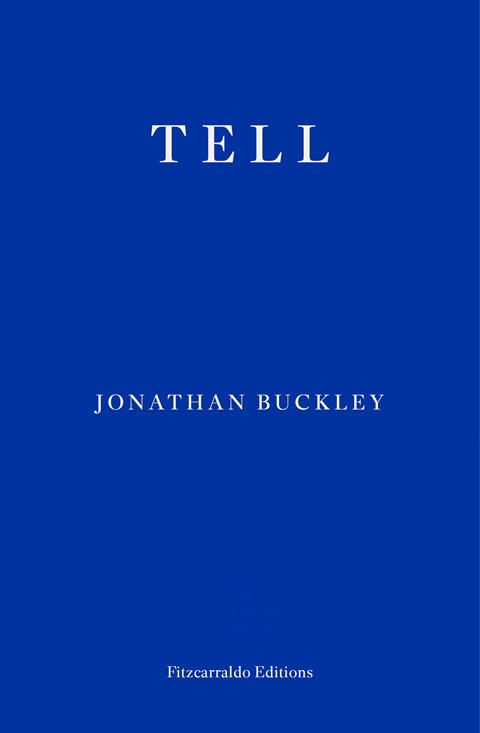
Tell by Jonathan Buckley (March)
The story of a rich businessman, Curtis, who has disappeared, seemingly without a trace, is told via transcripts of interviews with his gardener: Tell is a monologue where even reported speech within it is scarce. In this way, Buckley produces a discerning study of the boundaries of storytelling. Although this is a riveting thriller that sweeps you in from the off, instead of starting at a clear beginning, Buckley breadcrumbs a host of unexplained names and incidents as if you just walked into a party, tuned into a radio station or turned on the TV midway through an anecdote. This creates a sense of anxiety: what have I missed? What do I need to know? When can I know it? Buckley’s prose is unpretentious and engrossing, weaving in a constant sense of foreboding that proves irresistible.
Headshot by Rita Bullwinkel (March)
Rita Bullwinkel’s debut novel delivers intimate portraits of eight teenage girl boxers who find themselves in Reno, Nevada, fighting for the national championship in the Daughters’ of America Cup. As the girls face off, two at a time, to deliver jabs, hooks and body shots, Bullwinkel lets us inside their heads and lays their pasts and futures bare. Her prose is direct, deft and tough, but not without grace and emotion. There’s almost no dialogue whatsoever. But as each bout reveals ever more about the girls, from their motivations to their muscle tone, Bullwinkel renders the intricacies of adolescent girlhood in such a way that cannot fail to give readers sharp jolts of recognition.
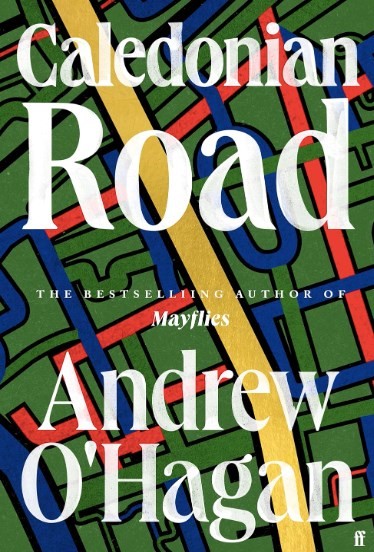
Caledonian Road by Andrew O’Hagan (April)
Anyone with an appetite for schadenfreude will swallow this tale of obscene privilege, high society and smug celebrity whole. Following a lengthy cast list of characters that would put Jilly Cooper to shame, O’Hagan plots a course that sees the well-connected and starry academic Campbell Flynn, topple – rather than fall – from grace. There’s more than a whiff of #MeToo here but thanks to O’Hagan’s weighty reflections and inimitable brilliance the Caledonian Road doesn’t descend into gratuitous wanton scandal, instead readers get a full, thoughtful excavation of public shame and ignominy.
James by Percival Everett (April)
A reimagining of Mark Twain’s The Adventures of Huckleberry Finn, James is told from the perspective of the enslaved man – better known as Jim – who was Huck’s travel companion as the pair searched for their own versions of freedom in the original novel. This is Jim’s story, with Everett literally giving him the voice he deserves. Critics and academics alike have pointed out that Twain’s portrayal of Jim was racist and that he was unfairly depicted as unintelligent. In Everett’s expert hands, Jim is given wit, depth and guile. Everett remains faithful to Twain’s general plot but the tale is given new and fairer life, allowing Jim to move gracefully from the wings of literary history to centre stage.
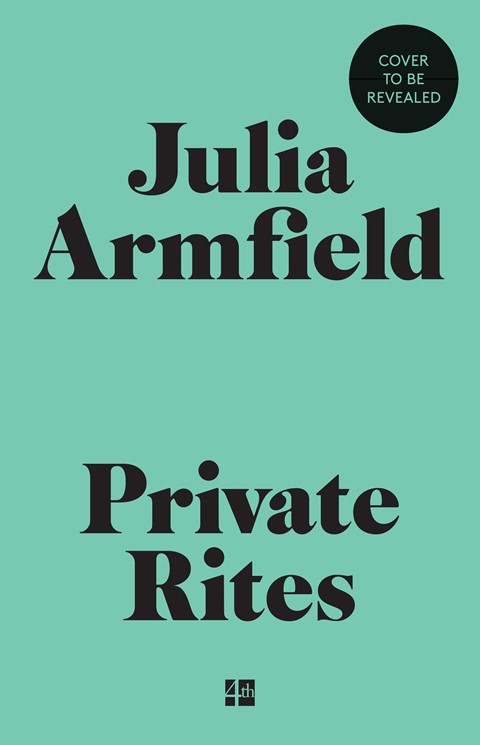
Private Rites by Julia Armfield (June)
Against a backdrop of the actual end of the world, a world characterised by and redesigned for flooding and rainfall, where there is a distinct Then (when things were drier) and Now (deluge), three estranged sisters grapple with the death of their father. There are clear parallels to Shakespeare’s King Lear – in fact, the first epigraph is from the tragedy: we that are young / shall never see so much, nor live so long. Private Rites explores the push and pull between chaos and order with Armfield addressing the climate crisis, grief and the pains and pleasures of familial love with incisive honesty. Her prose bites hard.
Parade by Rachel Cusk (June)
Fans of Cusk and her beautiful, stark prose won’t be disappointed by Parade, which sees some of her favourite themes revisited and reimagined. Womanhood, art, and misogyny run deep through this novel, which centres on the painful, difficult life of G, a painter who can’t escape the disapproval of those closest to her, and other characters whose lives and identities are turned over and over. Cusk’s narrative is confrontational and makes readers question all sorts of complexities including notions of morality and integrity.
